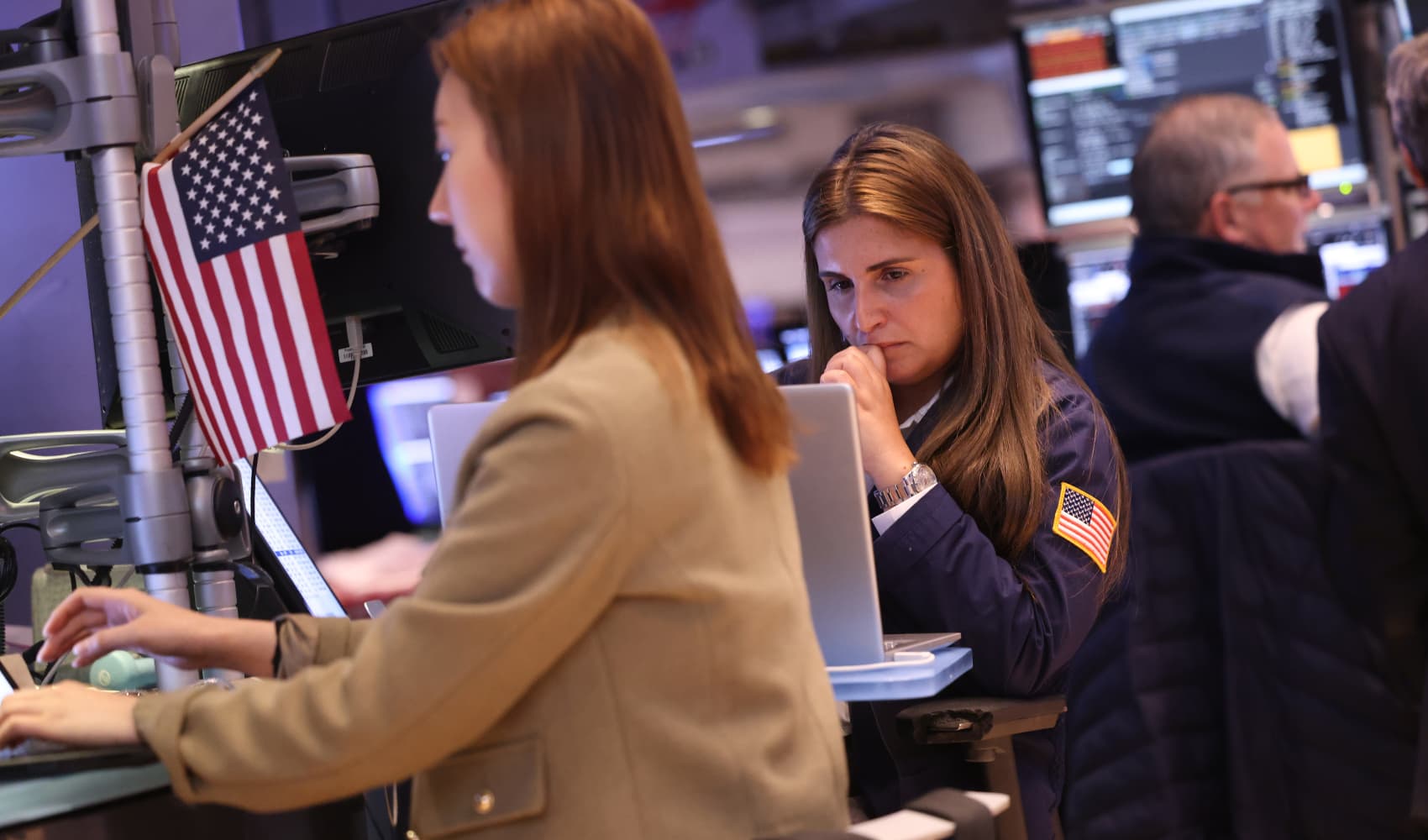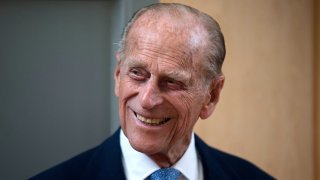
- "His Royal Highness passed away peacefully this morning at Windsor Castle," Britain's royal family announced Friday.
- Philip married his third cousin Elizabeth in 1947.
- He became British consort to the sovereign after King George VI died in 1952.
- The Duke of Edinburgh had taken up more than 22,000 solo engagements, 637 overseas visits, delivered an estimated 5,493 speeches and worked as a patron to almost 800 organizations.
LONDON — The House of Windsor has lost its patriarch.
Prince Philip, the Greece-born royal who as the husband of Queen Elizabeth II was the longest-serving consort to a British sovereign, died Friday. He was 99.
Get Tri-state area news and weather forecasts to your inbox. Sign up for NBC New York newsletters.
"His Royal Highness passed away peacefully this morning at Windsor Castle," the royal family announced. "Further announcements will be made in due course. The Royal Family join with people around the world in mourning his loss."
After the announcement, flags were lowered to half-staff, and the BBC News channel played "God Save the Queen."
The Duke of Edinburgh's death came 12 days before Queen Elizabeth's 95th birthday on April 21, two months before what would have been Philip's 100th birthday on June 10 and on the 16th anniversary of the marriage of Prince Charles and Camilla. Under a long-standing plan known as "Operation Forth Bridge," his death ushers in a period of national mourning.
Money Report
The royal family webpage was replaced with a tribute page in black in memory of the prince, who was married to Elizabeth for nearly 74 years.
"The official website of the Royal Family is temporarily unavailable while appropriate changes are made," the royal.uk site said.

At noon Saturday London time (7 a.m. Saturday ET ), a "Death Gun Salute" will be fired to mark Philip's death. Forty-one rounds will be fired at one round a minute across the United Kingdom, in Gibraltar and on Her Majesty's Ships at sea, the Defence Ministry said. In London, the King's Troop Royal Horse Artillery will use the same guns that were fired for the royal couple's wedding in 1947 and for Elizabeth's coronation in 1953.
The House of Commons tweeted that it will sit at 2:30 p.m. on Monday to pay tribute to the duke.
Philip had insisted that he did not want the "fuss" of a state funeral at Westminster Hall, according to The Times of London. The Royal College of Arms announced that Philip's body will lie at rest in Windsor Castle ahead of the funeral in St George's Chapel, in line with custom and his wishes. It said there will be no state funeral and no lying in state. It also said the date of the funeral will be announced.
"The funeral arrangements have been revised in view of the prevailing circumstances arising from the COVID-19 pandemic and it is regretfully requested that members of the public do not attempt to attend or participate in any of the events that make up the funeral," it added in a statement.
Buckingham Palace added: "Those wishing to express their condolences are asked to do so in the safest way possible, and not to gather at Royal Residences." The family also asked the public to make donations to a charity instead of leaving floral tributes. Condolence messages can be posted at the royal.uk website.
'My constant strength'
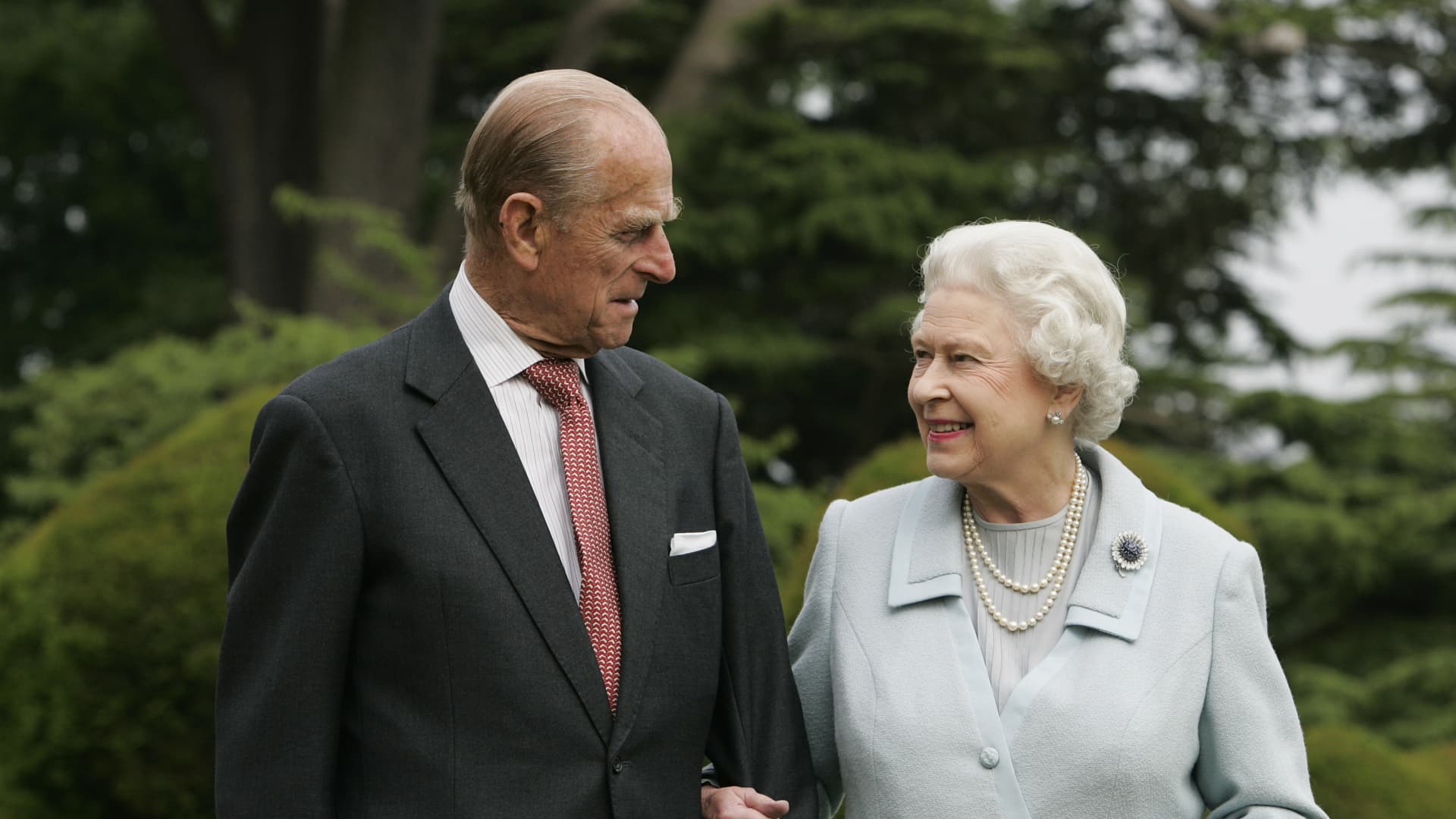
Philip, whom the queen referred to as "my constant strength," was hospitalized in February after "feeling unwell," and was treated for an infection and a preexisting heart condition, Buckingham Palace said. He was released a month later after undergoing a heart procedure.
Prime Minister Boris Johnson said in a statement that "it was with great sadness" he had been informed of Philip's death, reflecting on the duke's "extraordinary life and work" and offering his condolences to the queen.
"Like the expert carriage driver that he was he helped to steer the royal family and the monarchy so that it remains an institution indisputably vital to the balance and happiness of our national life," Johnson said. "We mourn today with Her Majesty The Queen, we offer our condolences to her and to all her family, and we give thanks, as a nation and a Kingdom, for the extraordinary life and work of Prince Philip, Duke of Edinburgh."
Tributes also came pouring in from world leaders including U.S. President Joe Biden and Russian President Vladimir Putin.
"On behalf of all the people of the United States, we send our deepest condolences to Her Majesty Queen Elizabeth II, the entire Royal Family, and all the people of the United Kingdom," Biden said in a statement. "Jill and I are keeping the Queen and to Prince Philip's children, grandchildren, and great-grandchildren in our hearts during this time."
Putin wished the queen "courage and spiritual fortitude in the face of a heavy and irreparable loss."
The duke, who popularized the sobriquet "The Firm" for Windsor family business, ended his official duties in the fall of 2017. Months earlier, in June, he was hospitalized for an infection and missed the Queen's Speech opening the newly elected Parliament that month.
Two days after missing Easter 2018 services at St. George's Chapel, he was admitted to King Edward VII Hospital for previously scheduled hip replacement surgery, the palace said. That 10-day hospitalization came weeks before the birth of Prince William and Kate's third child, Prince Louis Arthur, and the marriage of Prince Harry to Meghan Markle on May 19, 2018, at St. George's.
In January 2019, Philip was uninjured after he was involved in a collision while driving a Land Rover — at age 97 — near the queen's Sandringham estate. The vehicle overturned, according to witnesses, and two women were treated for injuries. Weeks later, he decided to turn in his driver's license.
During the coronavirus pandemic, Philip and Elizabeth had been staying at Windsor Castle, west of London.
The Duke of Edinburgh supported his wife throughout an unprecedented time of social, economic, technological, political change and family crises.
Fourteen prime ministers held office while Philip was British consort — companion to the sovereign — from Winston Churchill in 1952 through Johnson.
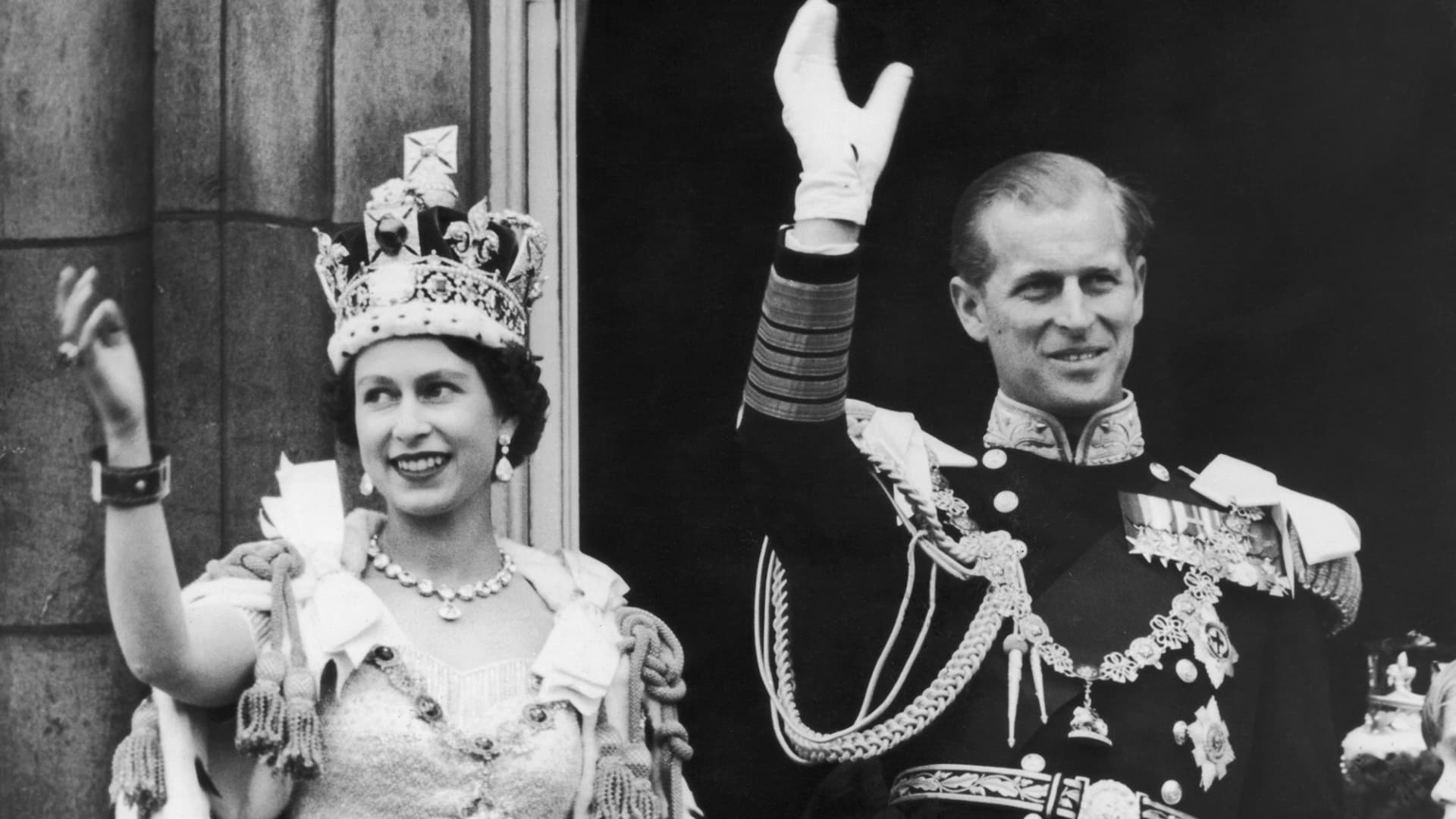
Both the duke and the queen, the world's longest-reigning monarch, witnessed the transformation of a once-global British Empire into a Commonwealth of 52 independent member states, a free association headed by the queen.
Philip's public statements had been few and far between in recent years and, even rarer were his direct dealings with the media. Previously, the duke was renowned for speaking his mind at public engagements, many times with cringe-worthy remarks that bent the bounds of humor.
During the 1981 recession, for example, he said: "Everybody was saying we must have more leisure. Now they are complaining they are unemployed."
"Aren't most of you descended from pirates?" Philip asked a wealthy resident of the Cayman Islands in 1994.
"You're too fat to be an astronaut," he told a 13-year-old boy in 2001.
When meeting in 2012 with a mayor who used a mobility scooter, Philip asked him: "Have you run over anybody?"
A prince of Greece
Philip was born June 10, 1921, on the Greek island of Corfu as the youngest child and only son of Prince Andrew of Greece and Denmark and Princess Alice of Battenberg. Andrew, whose father, King George I of Greece, was assassinated in 1913, was a commander in the Greek army during the 1919-1922 war with Turkey. With Greece's defeat, Andrew and the family were exiled in 1922, settling in France.
Philip's maternal grandfather, Prince Louis of Battenberg, renounced his German titles, adopted the surname Mountbatten, an Anglicized version of the German Battenberg, and became a British citizen.
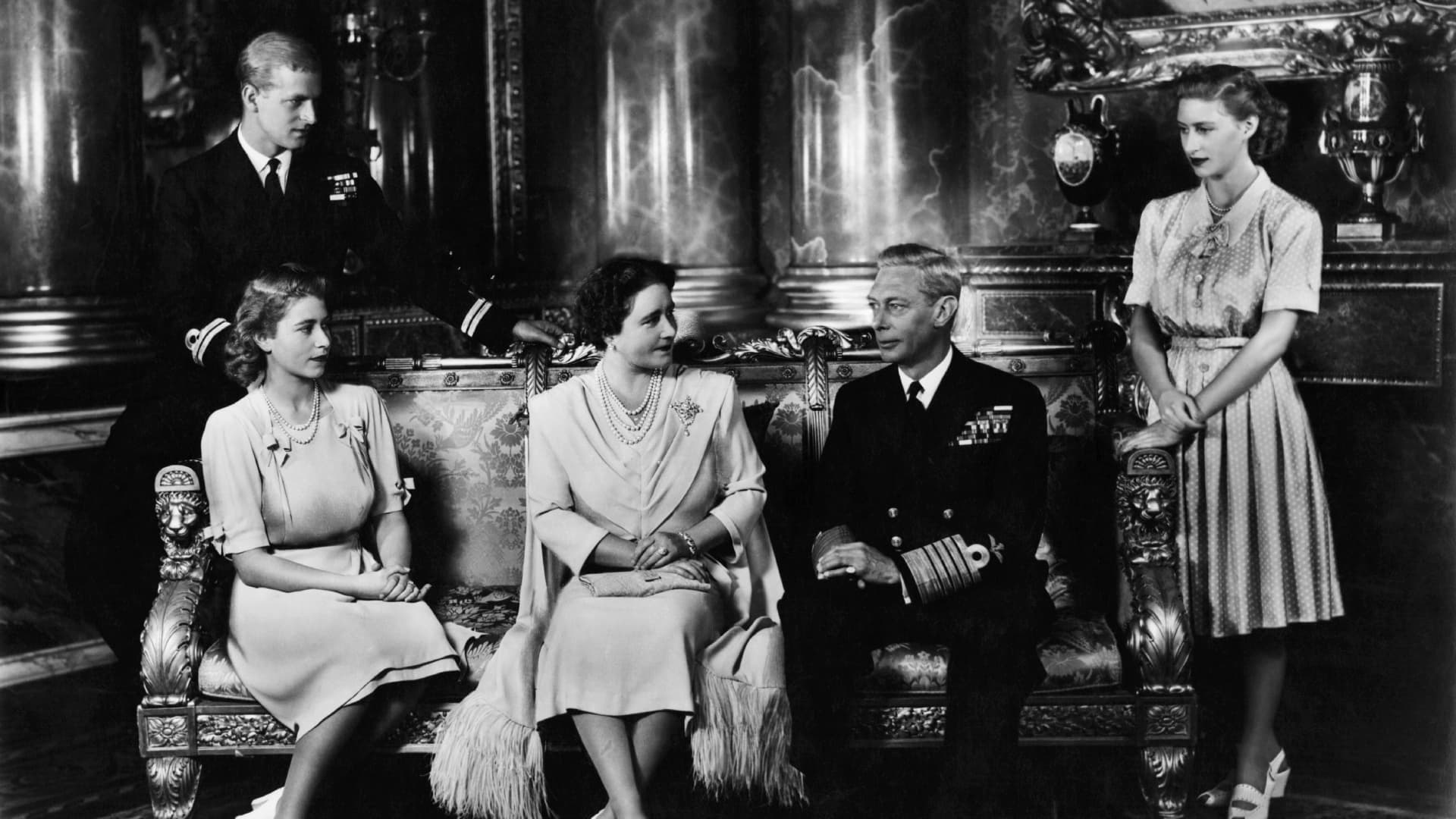
At age 7 in 1928, Philip was sent to school in England. He lived with his maternal grandmother, Victoria Mountbatten, and his uncle George Mountbatten.
Philip's four sisters married German aristocrats, and three of them — Sophie, Cecilie and Margarita — joined the Nazi party. To be sure, one of his brothers-in-law was among those implicated in the 1944 plot to kill Adolf Hitler.
In an interview with historian Jonathan Petropoulos published in his 2006 book "Royals and the Reich," Philip stressed that he was never "conscious of anybody in the family actually expressing anti-Semitic views," but he acknowledged there were "inhibitions about the Jews" and "jealousy of their success."
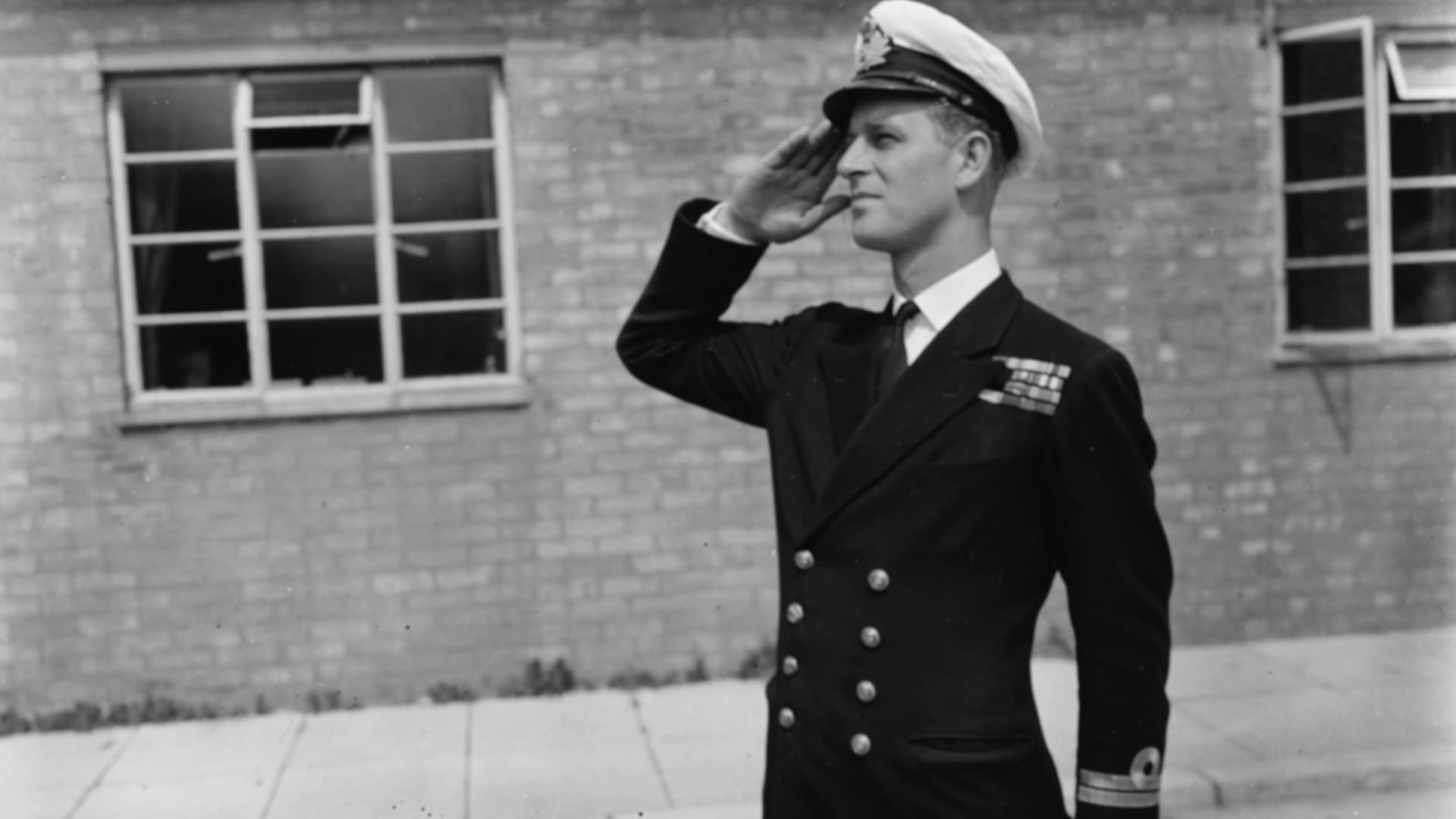
As a teenager, Philip joined the Royal Navy and went on to serve in World War II, including participating in the battles of Cape Matapan and Crete and the invasion of Sicily. He was in Tokyo Bay for the Japanese surrender on Sept. 2, 1945, and would later receive the Greek War Cross of Valor for his services in the Navy.
Royal matrimony
In 1947, the 26-year-old Philip married his third cousin, Princess Elizabeth, 21, and in doing so, renounced his Greek title to become a naturalized British subject. He was later made Duke of Edinburgh by Elizabeth's father, King George VI.
The royal matrimony at that time was not without controversy since Philip was not a native son. The Queen Mother reportedly referred to him as "the Hun." Nevertheless, the couple married in Westminster Abbey and received more than 2,500 wedding gifts from around the world. One year later, son and heir to the throne Charles was born, followed by Anne, Andrew and Edward.
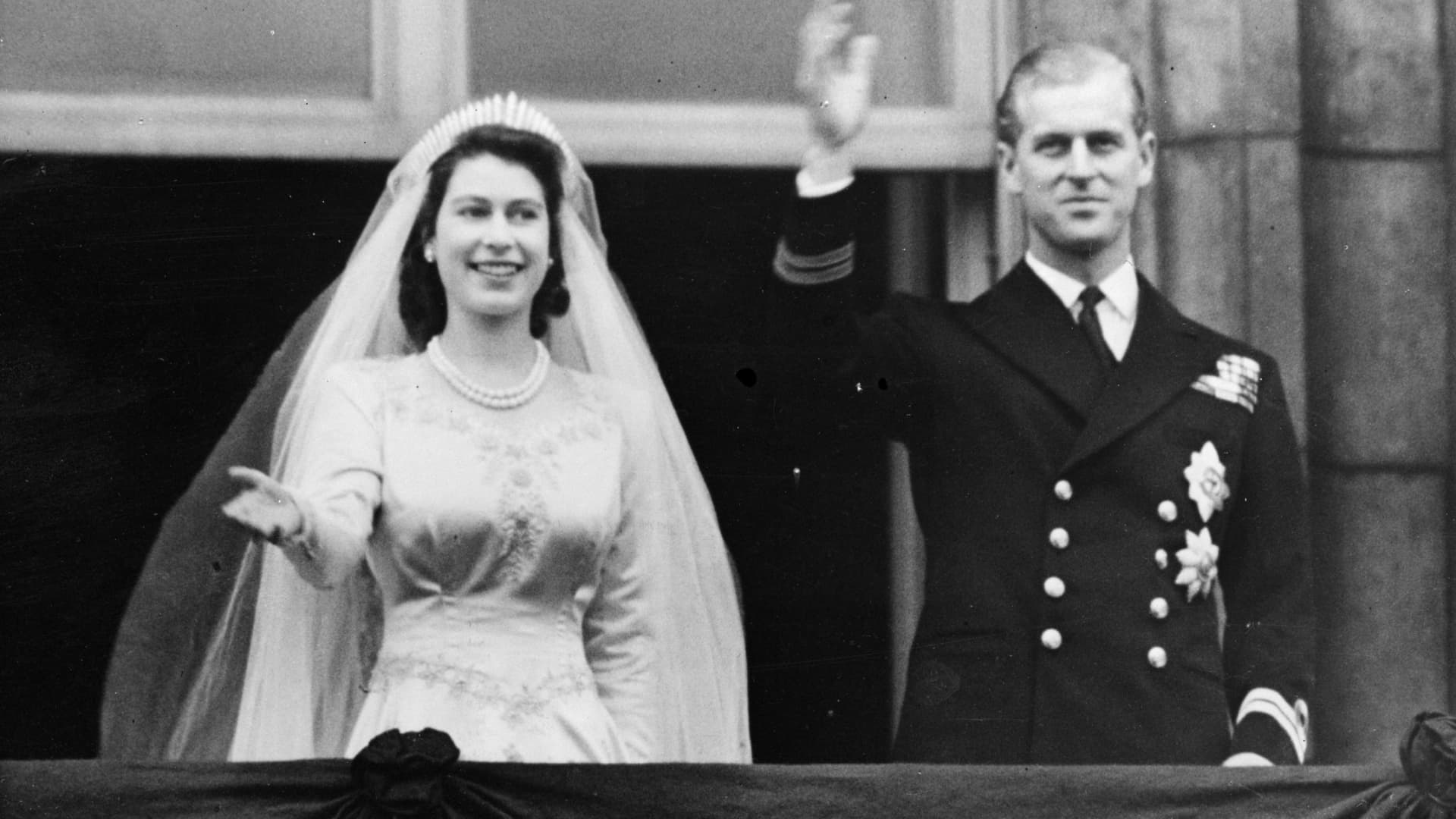
Philip's naval career, which had seen the newly married couple stationed in Malta for a short period, subsequently ended when George VI died Feb. 6, 1952, and Princess Elizabeth became queen.
The duke assumed his new role as consort, accompanying Her Majesty around the world on domestic trips, state visits and Commonwealth tours.
Elizabeth was formally crowned queen in 1953 in the first live television coronation to be broadcast globally. Shortly thereafter, Philip and Elizabeth embarked upon a seven-month international tour, visiting 13 countries and logging over 40,000 miles.
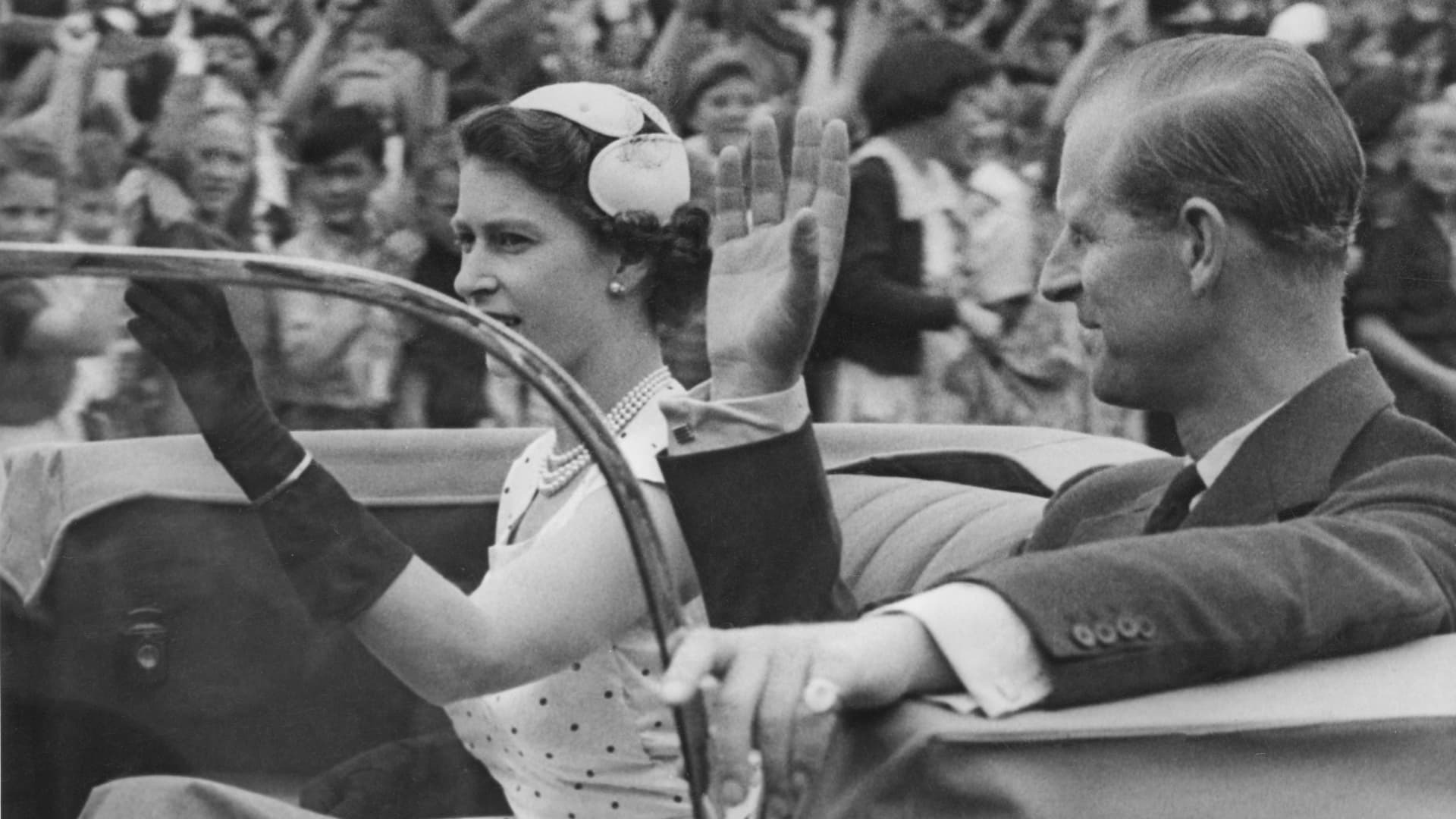
'Nobody's ever forgotten meeting him'
Alongside his royal commitments, the duke became a qualified pilot and regularly played polo until his 50th birthday. Philip achieved many flying qualifications that would see him receive his Royal Air Force wings in 1953, helicopter wings two years later and private pilot's license in 1959.
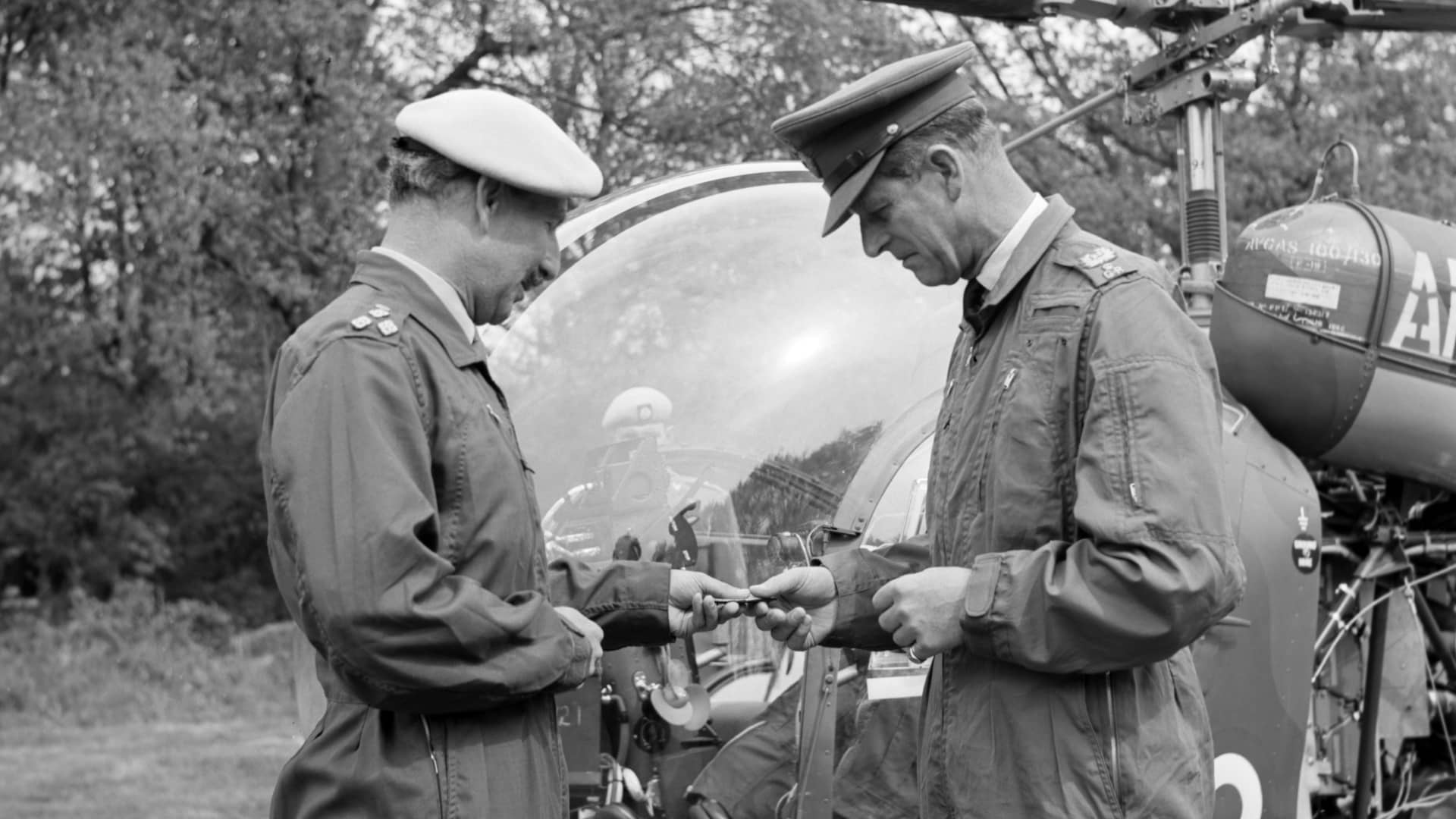
In an official capacity, Philip traveled to more than 140 countries.
"The great thing about my father is that nobody's ever forgotten meeting him, so they've all got their stories," Prince Edward, the Earl of Wessex, said during an engagement at Windsor Castle in May 2017.
"Wherever he's been, wherever in the world — people remember him. You can't really get a better accolade than that," he added.
Queen Elizabeth II and Prince Philip's reign also had to endure times of crises, including the British monarch being shot at with blanks in 1981. Two years earlier, the queen's art advisor, Anthony Blunt, was revealed to be a Communist spy, and Philip's uncle, Louis "Dickie" Lord Mountbatten, was killed by an Irish Republican Army bomb.
In 1992, the marriages of three of their children collapsed. Andrew and Anne divorced from their spouses and Charles and Diana began a separation that ended in divorce four years later. Also in 1992, fire gutted Windsor Castle, one of the couple's official residences. The queen described this 12-month period as an "annus horribilis."
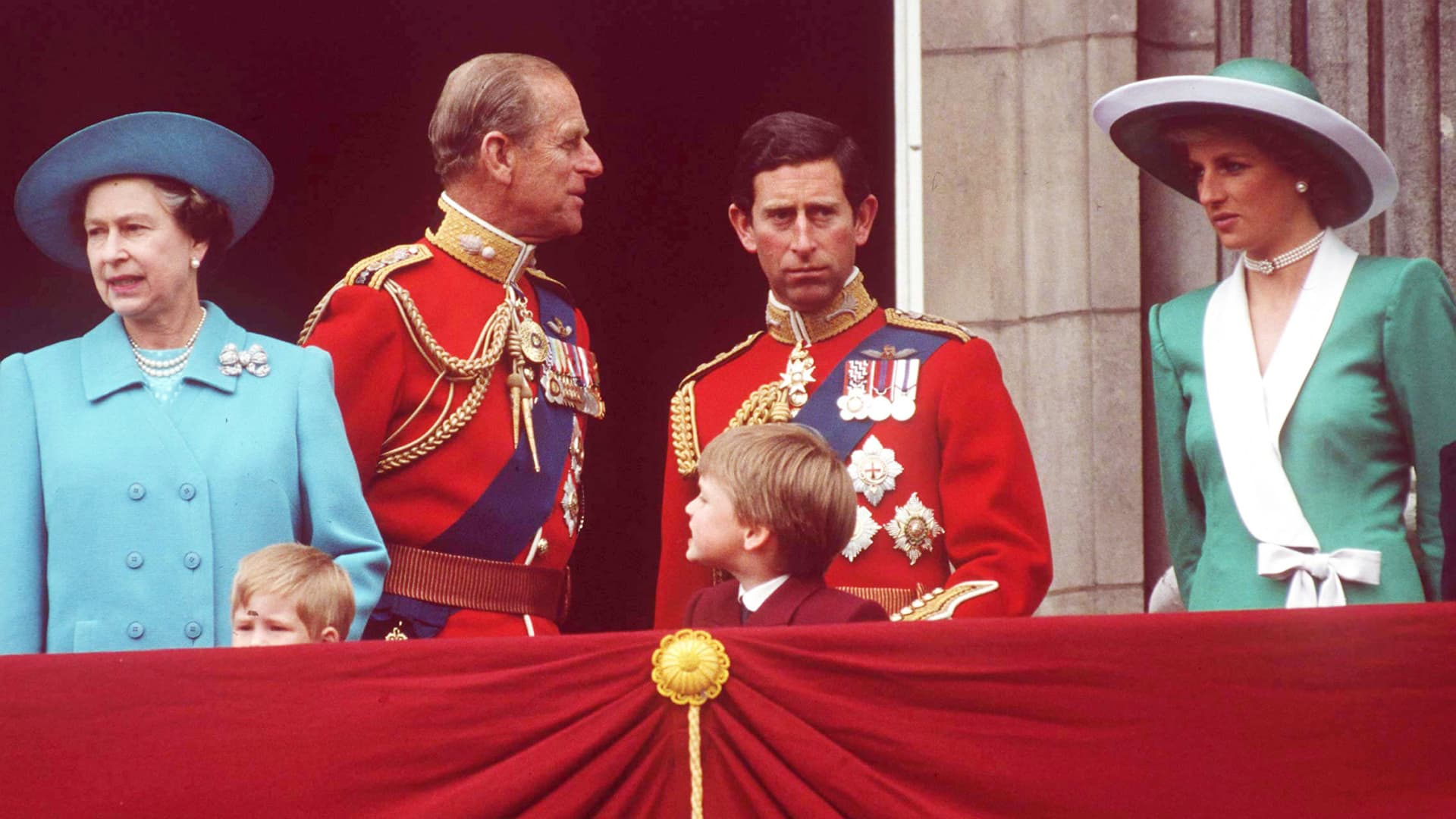
'Will you walk with me?'
During Charles and Diana's troubles, Philip reportedly counseled the couple to reconcile, but to no avail. A year after the 1996 divorce, Diana and her boyfriend Dodi Fayed were killed in a Paris car crash as photographers were chasing their limousine. Before the funeral, Philip successfully encouraged his 15-year-old grandson, William, to walk behind Diana's casket. Sixty years earlier, the then-16-year-old Philip marched behind the casket of his sister Cecilie after she was killed in a plane crash.
"If you don't walk, I think you'll regret it later," Philip told William, according to British media accounts. "If I walk, will you walk with me?"
Fayed's father claimed that Philip had ordered the couple executed, but in 2008, a London coroner rejected Mohamed al Fayed's conspiracy allegations, ruling there was no such evidence. The jury eventually decided that the crash resulted from grossly negligent driving by the couple's chauffeur and the pursuit of their limousine by paparazzi.
'I ... owe him a debt greater than he would ever claim'
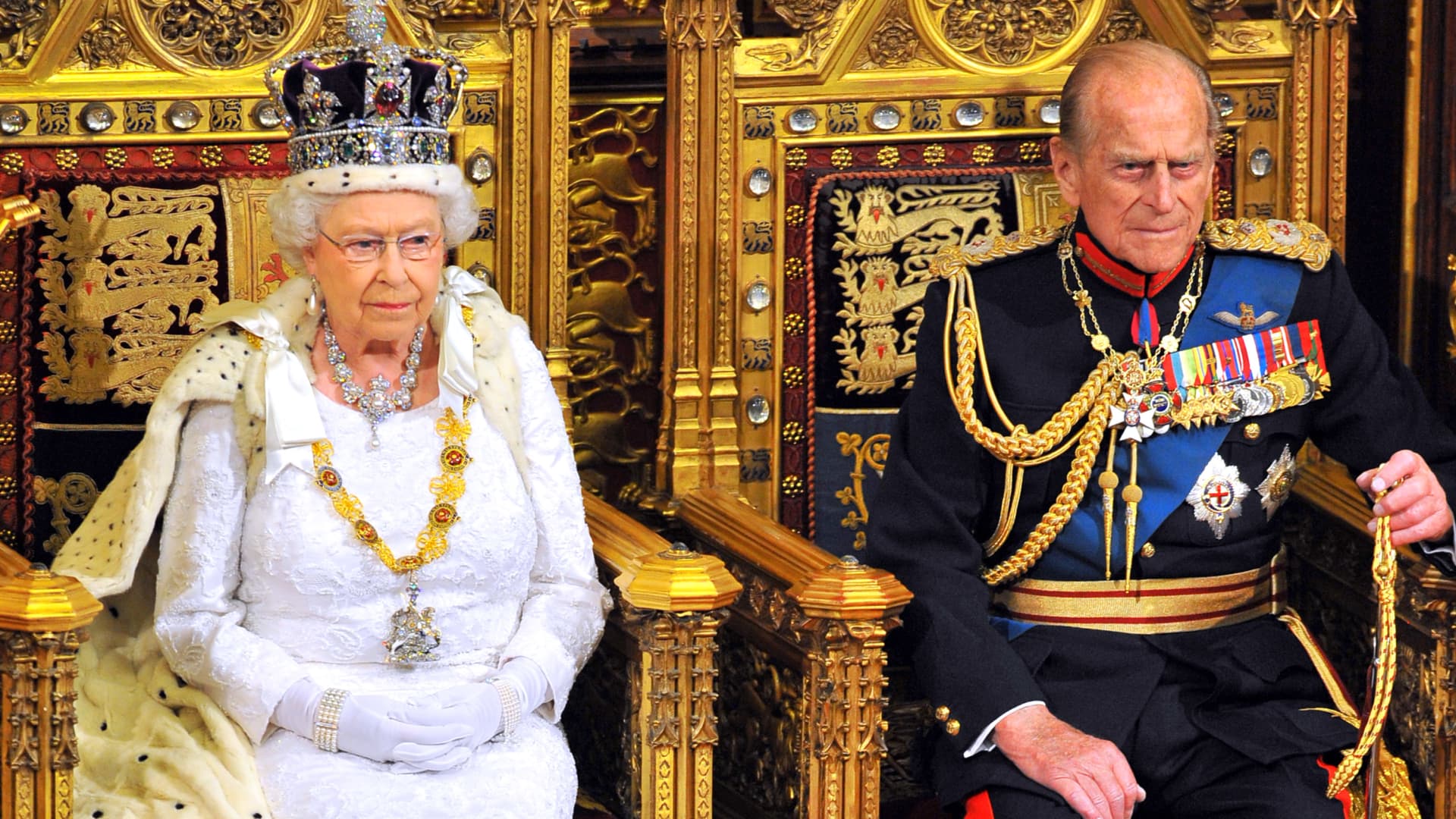
In the decades following his marriage to the queen, the Duke of Edinburgh had taken up more than 22,000 solo engagements, 637 overseas visits, delivered an estimated 5,493 speeches and worked as a patron to almost 800 organizations, according to the royal website.
One of his most successful associations has arguably been the creation of the Duke of Edinburgh Award, a youth self-improvement program that has been running for 65 years.
In May 2017, the palace announced that the then-95-year-old prince would permanently discontinue his royal duties as of the fall. Philip and his wife had gradually passed on some of their respective workload in recent years. Their son and heir, Prince Charles, as well as grandsons, Princes William and Harry and other family members assumed more collective responsibility until Andrew was effectively stripped of his royal duties in 2019 because of his association with the late sex offender Jeffrey Epstein and Harry stepped back as a senior royal in 2020.
The queen said in tribute to her husband on their golden wedding anniversary on Nov. 20, 1997, "Quite simply, (he has) been my strength and stay all these years, and I and his whole family, in this and many other countries, owe him a debt greater than he would ever claim or we shall ever know."
The couple celebrated their 70th wedding anniversary in November 2017. During their private celebration at Windsor Castle, Elizabeth presented him with the Grand Cross of the Royal Victorian Order for "services to the sovereign."
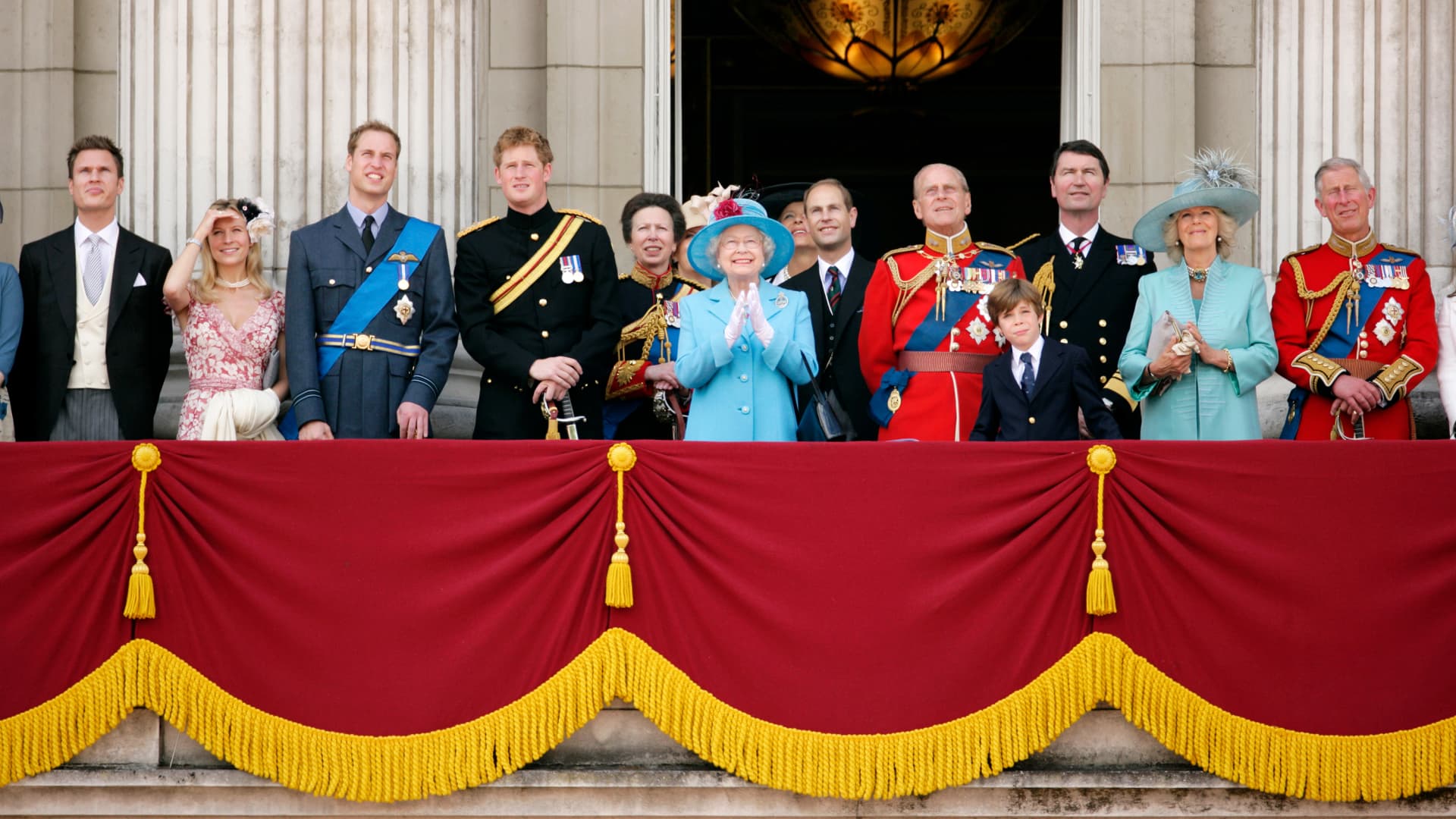
Survivors include his wife, Queen Elizabeth II, and their children: Charles, Prince of Wales; Anne, Princess Royal; Prince Andrew, Duke of York; and Prince Edward, Earl of Wessex. The queen and Philip also had eight grandchildren and 10 great-grandchildren, including Augustus Philip Hawke Brooksbank, who was born Feb. 9 to Princess Eugenie and her husband, Jack Brooksbank, and is is named in part to honor the Duke of Edinburgh.
"This is obviously a very sad day for Her Majesty, the Royal Family and the whole country," Sir Lindsay Hoyle, speaker of the House of Commons, said in a statement. "The Duke of Edinburgh has given his unwavering support to The Queen, both as a husband and as a consort. Described by Her Majesty as 'my constant strength', he served this country too, first with distinction during the Second World War and selflessly throughout eight decades during peacetime. ...
"He will be remembered for his loyal devotion to service and his leadership of hundreds of ideals and causes close to his heart. Most notably, of course, is the Duke of Edinburgh's Award which helps millions of young people around the world to achieve their full potential as team members and future leaders in their chosen fields."
In a statement lamenting Philp's passing, the charity said it has aided 6.7 million young people in the U.K. alone in the 65 years since he founded it.
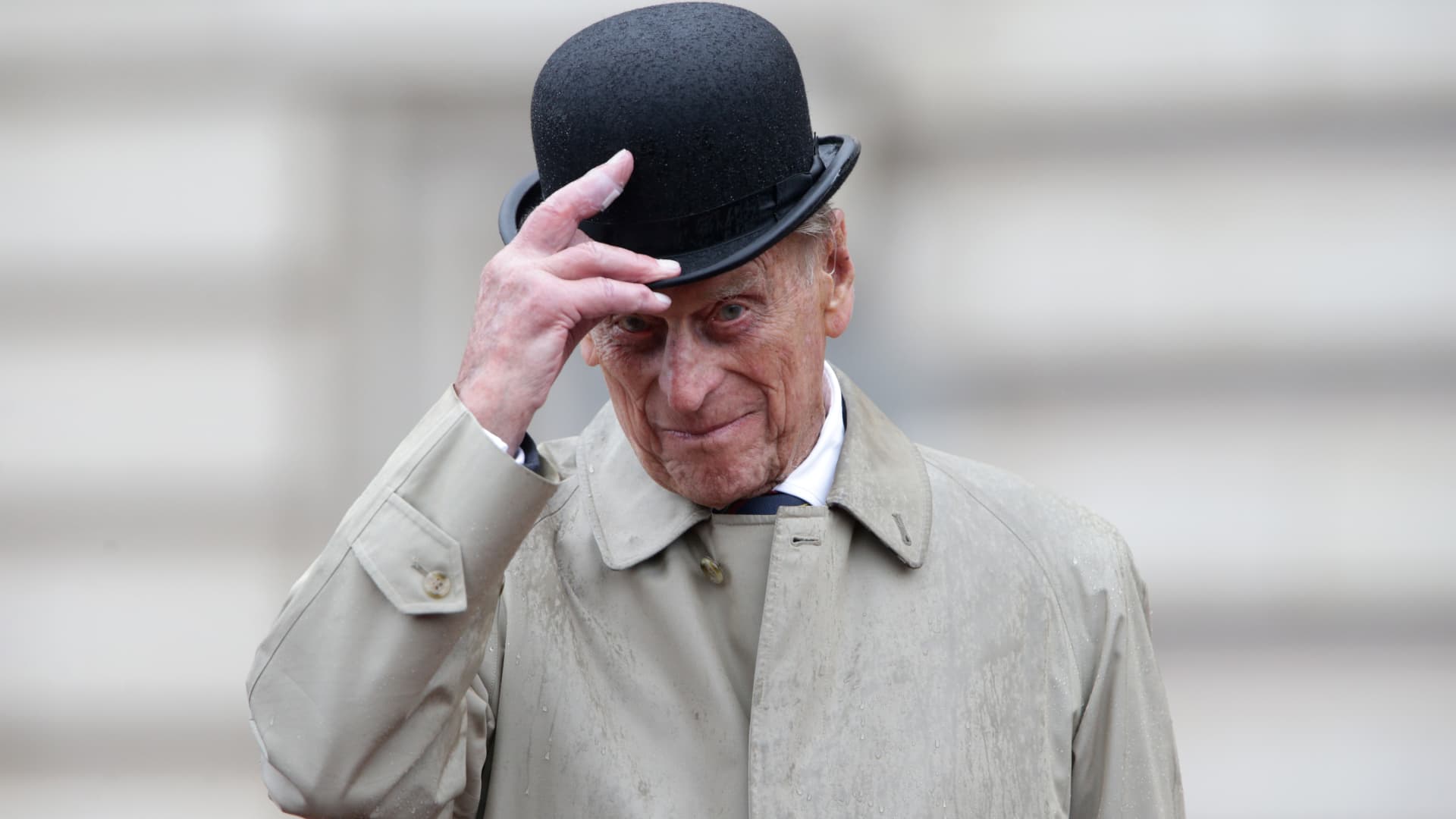
— CNBC's Marty Steinberg is based in New Jersey.



